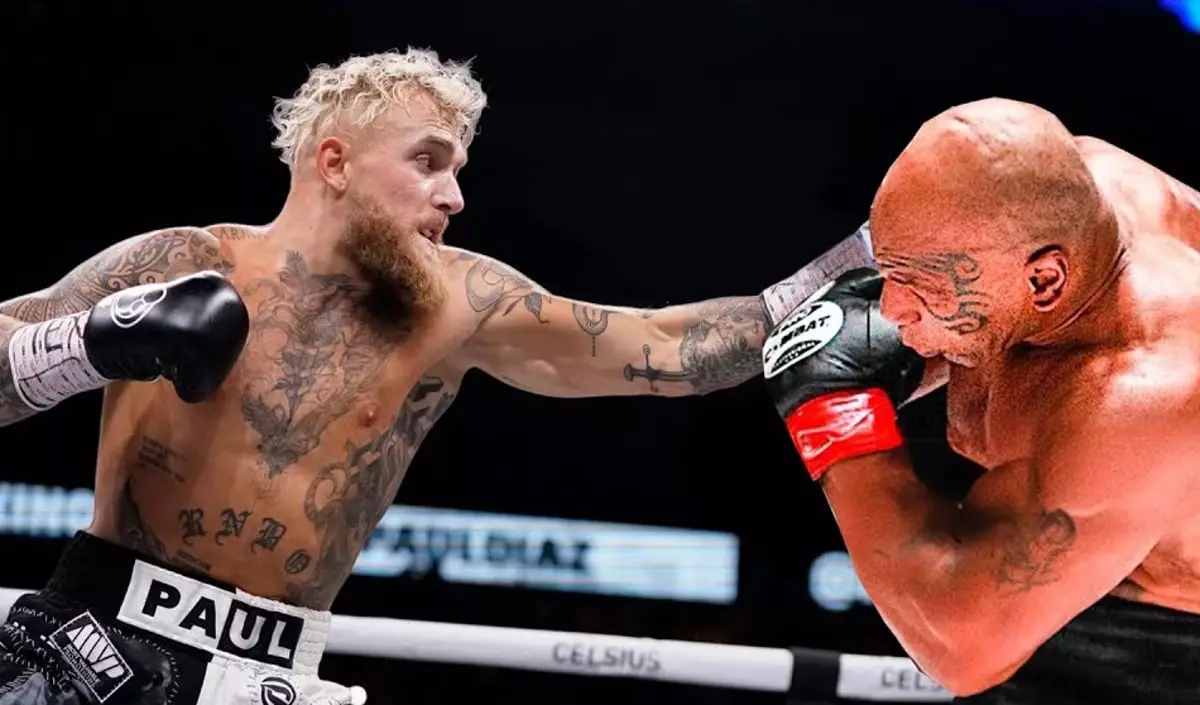Last Friday, the boxing world was buzzing with the unexpected results of a fight featuring Jake Paul and boxing legend, Mike Tyson. This battle, held at AT&T Stadium in Arlington, Texas, ended with Paul defeating the 58-year-old Tyson by unanimous decision after eight rounds. Although many anticipated an extraordinary showdown, what transpired resonated with disappointment among purists and seasoned commentators alike. Tim Bradley, a former professional fighter and current commentator, was particularly vocal about his discontent with the outcome and the nature of the bout.
Bradley expressed his dismay that a fight, which many believed should never have had the backing of professional sanctioning, could take place at all. The glaring factors against it included the advanced age of Tyson and the unconventional fight conditions—such as the use of 14-ounce gloves and shortened two-minute rounds. While the commission sanctioned the bout, questions remained about the integrity of such decisions, especially given Tyson’s extensive career and the physical toll it has taken on him. Critics argue that competitive fairness is at stake when fights like this are approved, primarily when they feature aging legends against younger, less experienced fighters who call themselves professionals.
Jake Paul, who is known primarily as a YouTube influencer, has carved out a unique space within boxing, often sparking debate about the legitimacy of his role in the sport. Bradley does not mince words when he labels Paul a “bum” and a “con artist,” emphasizing the YouTuber’s knack for choosing carefully curated opponents who are unlikely to jeopardize his winning record. This strategy exemplifies a broader trend within boxing where monetary gain can overshadow the spirit of competition. Bradley articulates that while one cannot fault Paul for capitalizing on lucrative opportunities, it raises concerns about the overall health and authenticity of boxing as a competitive sport.
The ease with which Paul has managed to attract attention from mainstream audiences underlines a troubling phenomenon for serious boxing enthusiasts. The reality is that he has consistently fought non-traditional boxers, primarily MMA fighters—those with no boxing pedigree—allowing him to maintain a facade of prowess while building his wealth. Despite holding a professional boxing record of 12-1 with 7 KOs, the glaring absence of high-level opponents raises red flags regarding both his abilities and intentions in the ring.
Mike Tyson, a name synonymous with heavyweight dominance, has effectively become a pawn in this new boxing landscape. Bradley’s critique of Tyson’s diminished capabilities owing to age serves as a poignant reminder of the risks involved in allowing aging fighters to reenter the ring. The implications of such matches not only jeopardize the legacies of these fighters but also alter the perceptions of boxing as a sport. Authenticity and skill are being replaced by entertainment value and financial gain, leading to a concerning evolution within boxing that may continue to alienate traditional fans.
The Jake Paul vs. Mike Tyson fight sheds light on significant issues in the boxing world, where the line between entertainment and genuine competition blurs. As the sport evolves, it remains critical for fans, athletes, and commentators alike to advocate for the integrity and respect that boxing demands.

